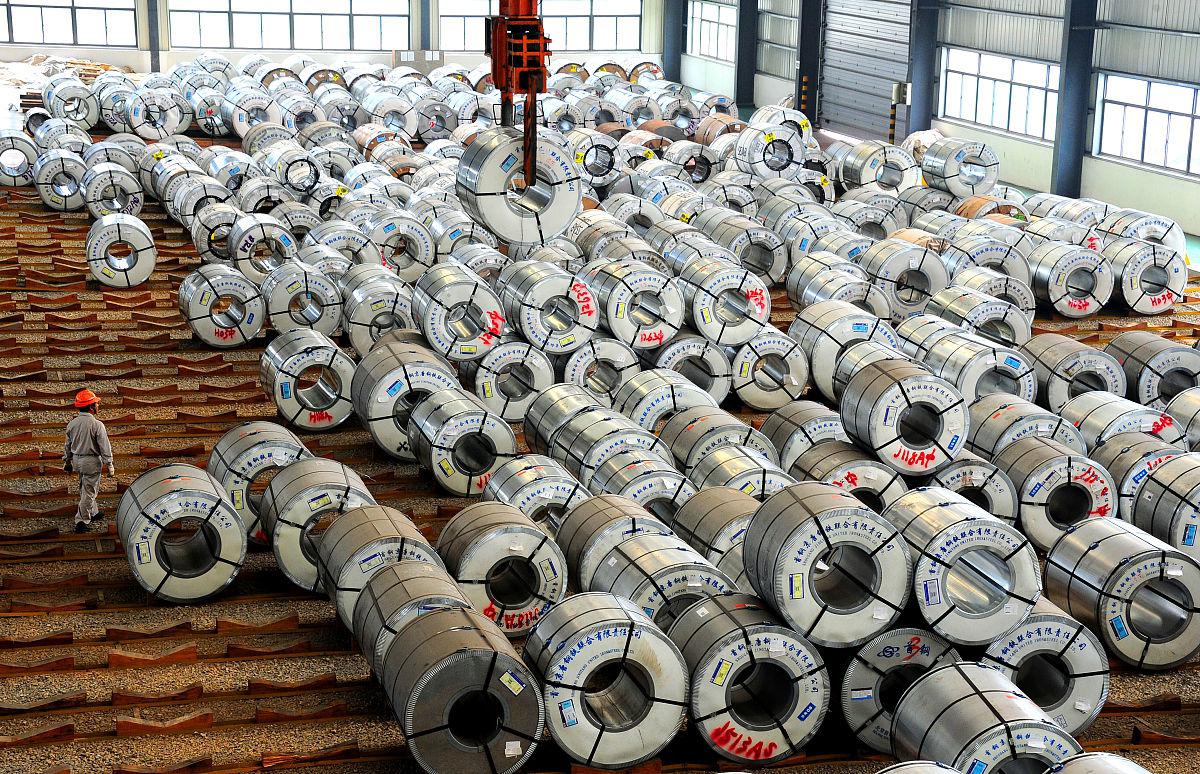
South Korea’s steel industry is facing serious challenges. According to South Korea’s“Gyeonggi News” reported on the 16th, South Korean steel giant Hyundai Iron and steel company recently declared a“State of emergency.
The company’s announcement was not a surprise. South Korean companies face competition from Chinese and Japanese steel products as the US imposes a 25% tariff on imported steel and aluminium products, the Korea Times reported Monday, it is also grappling with a slump in the domestic construction market and union strikes. Company officials said that based on a comprehensive assessment of market conditions at home and abroad, the company has had to take steps including cutting executive pay by 20% , implementing voluntary retirement plans, reducing the size of some factories and cutting back on overseas business trips.
Yonhap news agency reported that Hyundai, South Korea’s second-largest steelmaker by sales, had made the decision in a sign of growing pressure on the industry. Hyundai Steel reported in January that operating profit fell 10.4 percent and 60.6 percent last year to 314.4 billion won on revenue of 23.23 trillion won, or about $1.5 billion. But the company revised operating profit down 80 per cent to won159.5 bn in February as a result of the performance bonus scheme.
The US Steel and aluminum tariff policy not only has a direct impact on modern iron making, but also has a great impact on the entire Korean economy, steel industry and related industrial chains. South Korea is the fourth-largest supplier of steel products to the U. S. , after Canada, Brazil and Mexico, News1 reported. The U. S. market accounts for 35% of South Korea’s exports of steel and aluminum, making it an important export destination, industry sources said. An earlier Free trade agreement between the United States of and the Republic of Korea, signed in 2018, gave South Korea a duty-free quota of 2.63 m tonnes of steel a year, but that quota has also been removed. Other economies hit by the tariffs, such as the European Union and Canada, the largest U. S. importer of steel and aluminum, have responded with immediate tariff countermeasures.
It is worth noting that due to the lack of relevant resources and response capacity, the tariff policy on the Korean small and medium-sized steel and aluminum enterprises hit particularly hard. South Korea’s YTN television said it estimated about 1,800 small and medium-sized enterprises were affected by US tariffs. The government has plans to support them. Even so, the overall outlook for South Korea’s steel industry remains grim. Some estimates believe that the U. S. tariff policy may lead to South Korea’s steel industry to bear the burden of more than 1.2 trillion won.
Faced with the pressure of the US tariff policy, Jeong in-kee, Minister of trade negotiations of the Korean Ministry of Industry, trade and resources, recently visited the US for talks with US Trade Representative Jamison Greer in Washington. After the talks, Jeong said that because the United States plans to impose“Reciprocal tariffs” on April 2, he has asked the United States to exempt South Korea from tariffs or at least give it the same nondiscriminatory treatment as other major countries.